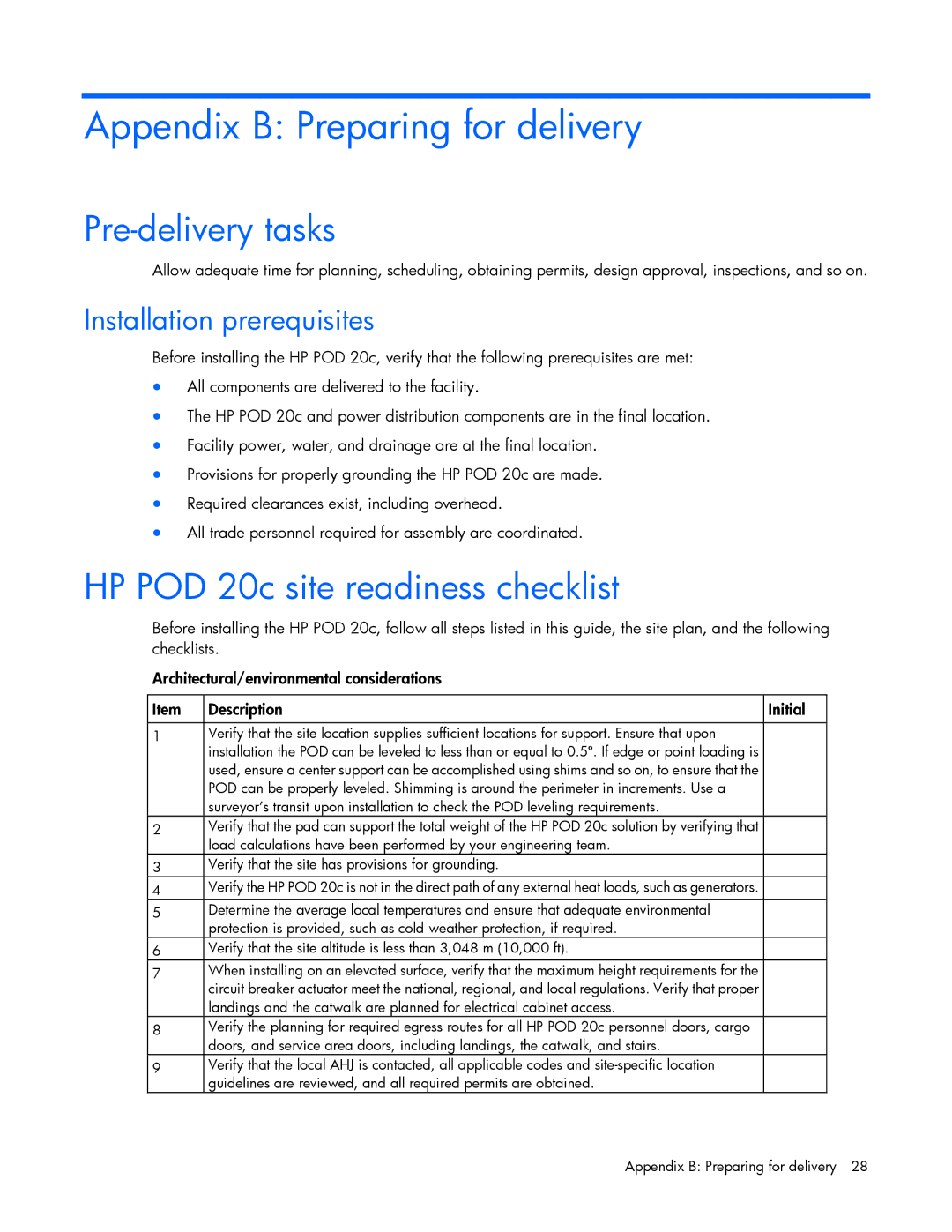Appendix B: Preparing for delivery
Pre-delivery tasks
Allow adequate time for planning, scheduling, obtaining permits, design approval, inspections, and so on.
Installation prerequisites
Before installing the HP POD 20c, verify that the following prerequisites are met:
•All components are delivered to the facility.
•The HP POD 20c and power distribution components are in the final location.
•Facility power, water, and drainage are at the final location.
•Provisions for properly grounding the HP POD 20c are made.
•Required clearances exist, including overhead.
•All trade personnel required for assembly are coordinated.
HP POD 20c site readiness checklist
Before installing the HP POD 20c, follow all steps listed in this guide, the site plan, and the following checklists.
Architectural/environmental considerations
Item | Description | Initial |
|
|
|
1 | Verify that the site location supplies sufficient locations for support. Ensure that upon |
|
| installation the POD can be leveled to less than or equal to 0.5º. If edge or point loading is |
|
| used, ensure a center support can be accomplished using shims and so on, to ensure that the |
|
| POD can be properly leveled. Shimming is around the perimeter in increments. Use a |
|
| surveyor’s transit upon installation to check the POD leveling requirements. |
|
2 | Verify that the pad can support the total weight of the HP POD 20c solution by verifying that |
|
| load calculations have been performed by your engineering team. |
|
3 | Verify that the site has provisions for grounding. |
|
4 | Verify the HP POD 20c is not in the direct path of any external heat loads, such as generators. |
|
5 | Determine the average local temperatures and ensure that adequate environmental |
|
| protection is provided, such as cold weather protection, if required. |
|
6 | Verify that the site altitude is less than 3,048 m (10,000 ft). |
|
7 | When installing on an elevated surface, verify that the maximum height requirements for the |
|
| circuit breaker actuator meet the national, regional, and local regulations. Verify that proper |
|
| landings and the catwalk are planned for electrical cabinet access. |
|
8 | Verify the planning for required egress routes for all HP POD 20c personnel doors, cargo |
|
| doors, and service area doors, including landings, the catwalk, and stairs. |
|
9 | Verify that the local AHJ is contacted, all applicable codes and |
|
| guidelines are reviewed, and all required permits are obtained. |
|
Appendix B: Preparing for delivery 28
